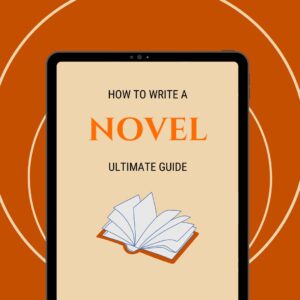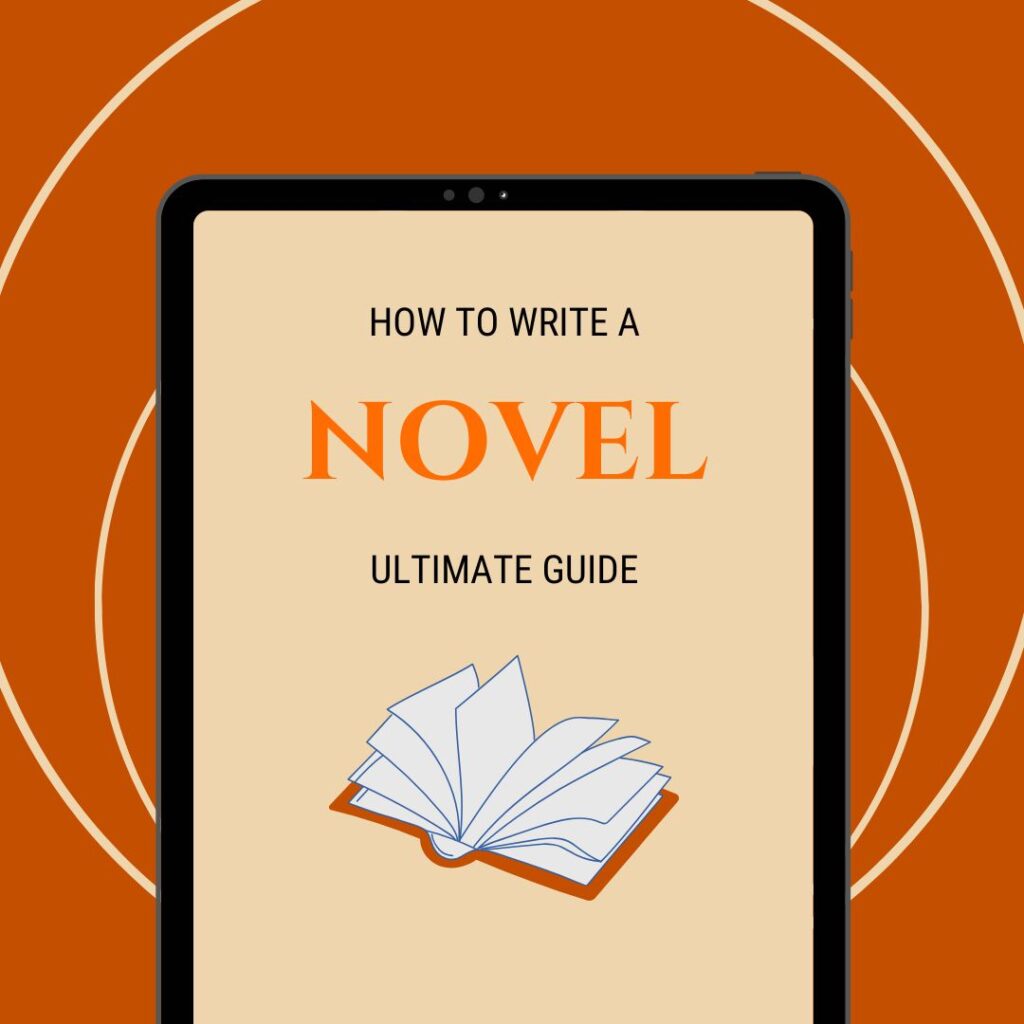How to write a novel
In this guide, we will delve into the intricacies of writing a novel, focusing on the key aspects and steps involved in the process. Whether you are an aspiring author looking to pen your first novel or a seasoned writer seeking to refine your craft, this article will provide valuable insights and guidance on crafting compelling and engaging stories.
Why Do You Want to Write a Novel?
Exploring Motivations
- Passion: At the heart of every novel is a writer’s passion, the driving force that compels them to put pen to paper. Writing a novel is a labor of love, requiring dedication and commitment to see a story through from conception to completion.
- Creativity: For many, writing a novel is a creative outlet, a way to express imagination and bring characters and worlds to life. The desire to create something unique and meaningful drives writers to embark on the novel-writing journey.
- Personal Fulfillment: Crafting a novel allows writers to explore themes, emotions, and ideas that resonate with them on a personal level. The process of writing can be cathartic, providing a sense of purpose and accomplishment.

Table of Contents
Understanding the Basics
What is a Novel?
A novel is a work of fiction that tells a story through a narrative structure, typically exploring characters, settings, and themes in depth. It is a literary form that allows writers to immerse readers in a vivid world of their creation.
Elements of a Novel
- Plot: The sequence of events that make up the story, including conflict, rising action, climax, and resolution.
- Characters: The individuals who drive the story forward, each with their own motivations, flaws, and arcs.
- Setting: The time and place in which the story unfolds, shaping the atmosphere and context of the narrative.
- Theme: The underlying message or central idea that the novel explores, offering insight into the human experience.
Different Types of Novels
- Length: Novels can vary in length from short works to epic sagas, with word count classifications such as novella, novellette, and novel.
- Genres: Novels span a wide range of genres, including romance, mystery, science fiction, fantasy, historical fiction, and more, each with its own conventions and audience.
Planning Your Novel
Importance of Planning in Writing a Novel
- Clarity: Planning helps writers establish a clear direction for their story, mapping out key plot points and character arcs.
- Consistency: A well-thought-out plan ensures that the narrative remains cohesive and maintains continuity throughout the novel.
- Productivity: Planning can prevent writer’s block and streamline the writing process, allowing authors to focus on storytelling.
Developing an Idea
- Inspiration: Ideas can come from various sources, such as personal experiences, observations, or a particular theme or concept that resonates with the writer.
- Brainstorming: Writers can use brainstorming techniques, such as mind mapping or freewriting, to generate and refine novel ideas.
Creating the Characters
- Character Profiles: Developing detailed character profiles can help writers flesh out their characters, including their backstory, motivations, and personality traits.
- Character Arcs: Characters should undergo growth and change throughout the story, facing challenges that shape their journey and contribute to the overall narrative.
Outlining the Plot
- Plot Structure: Writers can outline the key plot points of their novel, including the introduction, rising action, climax, and resolution.
- Chapter Outlines: Breaking down the story into chapters can provide a roadmap for the narrative progression and pacing of the novel.
Researching for Your Novel
- Thematic Research: Writers may need to conduct research on specific themes, historical periods, or settings to ensure accuracy and authenticity in their writing.
- Character Research: Understanding different perspectives and experiences can enrich character development and add depth to the storytelling.
Writing a Novel: Steps and Techniques
Writing the First Draft
- Flow: The first draft is about getting the story down on paper without worrying about perfection. Writers can focus on creativity and storytelling, knowing they can revise and edit later.
- Daily Writing Routine: Establishing a regular writing routine can help maintain momentum and consistency in progressing through the first draft.
Creating Tension and Conflict
- Conflict: Conflict drives the story and keeps readers engaged, presenting obstacles for characters to overcome and driving the narrative forward.
- Tension: Building tension through suspense, dramatic irony, or emotional stakes can create a sense of urgency and captivate readers.
Writing Engaging Dialogue
- Character Voice: Dialogue should reflect the personalities and motivations of the characters, conveying their emotions and advancing the plot.
- Natural Flow: Dialogue should sound authentic and natural, with each character’s speech patterns and mannerisms adding depth to their interactions.
Showing Versus Telling
- Visual Descriptions: Rather than telling readers what is happening, show through vivid descriptions and sensory details that immerse them in the scene.
- Emotional Depth: Showing characters’ emotions through actions, dialogue, and inner thoughts can create a deeper connection with readers.
Revising and Editing Your Novel
Importance of Revising and Editing
Revising and editing are crucial steps in the novel-writing process as they help refine and improve the overall quality of your manuscript. Here’s why they are essential:
- Refining the plot: Revisions allow you to fine-tune the plot structure, pacing, and coherence of your story.
- Developing the characters: Editing helps in deepening the characterization, making your characters more layered and believable.
- Enhancing the setting: Revising can enrich the setting descriptions, creating a vivid backdrop for your story.
- Polishing the language: Editing ensures that your writing is clear, concise, and engaging.
Reviewing the Plot
- Assess the overall flow of the narrative and check for inconsistencies or plot holes.
- Ensure that the story arc is cohesive and well-developed, with a satisfying beginning, middle, and end.
- Consider the pacing of the plot to maintain reader engagement throughout the story.
Developing the Characters
- Dive deeper into your characters’ motivations, desires, and flaws to make them more relatable and three-dimensional.
- Ensure that each character serves a purpose in the story and undergoes growth or change throughout the narrative.
- Pay attention to dialogue and actions that reveal character traits and advance the plot.
Enhancing the Setting
- Use descriptive language to create a vivid and immersive setting that complements the tone and mood of your story.
- Ensure that the setting is not just a backdrop but plays an active role in shaping the characters and plot.
- Consider how the setting influences character decisions and adds depth to the overall narrative.
Polishing the Language
- Focus on sentence structure, grammar, and punctuation to improve the readability and clarity of your writing.
- Eliminate redundancies, clichés, and jargon that may detract from the quality of the prose.
- Consider the tone and style of your writing to ensure consistency throughout the novel.
Getting Feedback
Importance of Critiques and Reviews
Obtaining feedback from others is a valuable part of the writing process as it provides fresh perspectives and insights into your work. Here’s why feedback is essential:
- Helps identify blind spots and areas for improvement that you may have overlooked.
- Offers constructive criticism and constructive praise to help you grow as a writer.
- Allows you to gauge the reader’s response and make necessary adjustments to enhance the overall impact of your novel.
Finding Trusted Readers
- Seek feedback from fellow writers, beta readers, or writing groups who understand the craft of storytelling.
- Consider diverse perspectives and opinions to gain a well-rounded assessment of your novel.
- Choose readers who are honest, constructive, and supportive in their feedback to help you strengthen your writing.
Frequently Asked Questions (FAQs) about How to Write a Novel:
What are the key elements of a novel?
A novel comprises plot, characters, setting, and theme. These elements work together to create a compelling story that engages readers.
How do I start writing a novel?
Begin by developing an idea, creating characters, and outlining the plot. Research for authenticity and immerse yourself in the world you want to create.
Why is planning important in novel writing?
Planning helps structure your story, develop cohesive plotlines, and ensure character consistency. It also aids in organizing your thoughts and ideas.
What is the best way to write engaging dialogue?
Focus on natural conversations, varying speech patterns, and using dialogue to reveal character traits or progress the plot.
How can I overcome writer’s block when writing a novel?
Experiment with writing prompts, take breaks to refresh your mind, or delve into character backgrounds or settings for inspiration.
What is the significance of revising and editing a novel?
Revision and editing refine your story, strengthen character development, enhance descriptive language, and ensure a polished final draft.
Conclusion:
Embarking on the journey of writing a novel can be both daunting and exhilarating. By understanding the fundamental elements, planning meticulously, embracing feedback, and persevering through challenges, you can transform your vision into a compelling narrative. Remember, the road to becoming a successful novelist may be paved with obstacles, but with dedication and passion, your literary aspirations can turn into reality. So, pick up your pen, unleash your creativity, and immerse yourself in the world of storytelling. Happy writing!
Discover marketing services, interviews & publishing tools at SharingStories.


